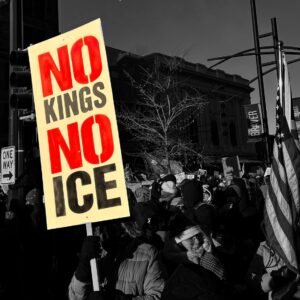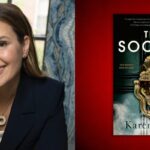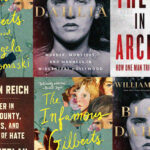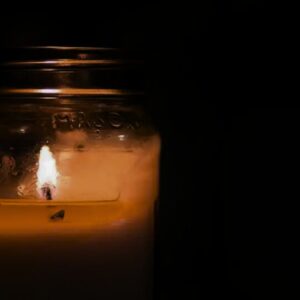
Jack Livings Wrote the Best First Book of the Year
This Year's PEN/Robert W. Bingham Winner Talks to Oscar Villalon
Earlier this week, Jack Livings won the PEN/Robert W. Bingham Prize for the best debut work of fiction by an American writer. This interview originally appeared at the literary journal Zyzzyva, in November.
In July, 2014, Michiko Kakutani gave a first book of fiction the sort of review authors rarely receive. It was an unqualified rave of Jack Livings’ story collection, The Dog (Farrar, Straus, & Giroux; 240 pages). “With ‘The Dog’,” Kakutani concluded, “Mr. Livings has made an incisive—and highly impressive—debut.” One could go even further. With The Dog, and its eight brilliantly told stories set in contemporary China, Jack Livings has delivered one of the best books of 2014—if not the best debut work of fiction by an American writer this year.
Much as Ken Kalfus did with Russian society in his story collection Pu-239, or the legendary B. Traven accomplished with Mexico in The Night Visitor and Other Stories, The Dog immerses itself into a “foreign” culture and unassumingly but palpably renders it for the distant reader (i.e., the average American). Whatever perception of otherness the reader might have held is torn down. In its place appears a deep recognition of these myriad characters whose anxieties and fears, accomplishments and failures, injustices suffered and resiliencies displayed all speak directly to us. We gladly inhabit these often comic, often tragic lives.
In the title story, a beleaguered Beijing man, who incinerates bodies for a living, is summoned home by his cunning and boorish business partner, who also happens to be family. In “The Heir,” a rebellious grandson and the opportunistic cops of the Public Security Bureau pique Omar, a Uyghur crime boss of dead-eye ruthlessness: “Once, a Kazakh had brushed against Omar’s wife in the market. The man apologized profusely, prostrating himself, delivering gifts in the following days. It’s nothing, Omar had said. He waited ten years to pour hot lead down the Kazakh’s throat.”
Elsewhere in The Dog, the same desperation irradiating U.S. newsrooms infects the staff at the Guangzhou Post in “Mountain of Swords, Sea of Fire,” a funny, salty tale that culminates in the moral reckoning of a veteran newsman: “He’d nearly frozen to death chasing the Panchen Lama on his exodus across the mountains of Nepal. He’d roasted in the sun for weeks at Lop Nur waiting for a subterranean nuclear test. He could have stayed in the newsroom, pulled the Xinhua file off the telex and punched up the copy, but he’d insisted on being there in person to feel the ground tremble. It mattered to him to witness the story. What had that all come to?”
And in what could be considered the crowning piece of a splendid collection, “The Crystal Sarcophagus,” teams of noble engineers are forced to undertake a lethally quixotic mission—quickly build an incorruptible, transparent casket to perfectly preserve Mao’s corpse, and do so with technology not in their possession. That the reader roots for these exasperated technicians to accomplish the impossible (in service of the less than palatable: the enshrinement of a tyrant) is a testament to Livings’ storytelling talent:
From early days, Task One delivered a steady stream of furnace technicians to the infirmary. The tubing, after an hour of constant use, would begin to glow. Longer, and it became sensitive to minor temperature changes, vibrations, a vortex of air swirling off the arm of a passing worker, a cricket landing somewhere outside the workshop, culminating in explosion, glass projectiles flying in every direction, those workers lucky enough to have their wits about them ducking as the shards smashed against the wall. It was Technician Shou, who, after a few weeks, noticed a pre-explosion creaking beneath the hiss, like that of river ice before it fissures, and became skilled at predicting when a tube was about to shatter. She’d throw her hand up and yell, ‘Cover!’ and everyone in the immediate vicinity would drop to the floor.
We talked to Jack Livings via email about The Dog, and asked him what drew him to writing these stories, as well as about the Uyghurs in China and the seeming impunity of the Public Service Bureau.
ZZYZYVA: Over the course of how many years were these stories produced?
Jack Livings: Too many. If I’m being inclusive, 14 years from the time I started the first one to the time I finished the book, but during that stretch I was working on other things, too. Toward the end, I put everything else away and spent about three years working exclusively on The Dog.
Z: What drew you to writing these tales? On a surface level, it would seem that there would be little connection between you as a white American writer and your many and varied Chinese protagonists.
JL: I wonder if that disconnection isn’t what drove me to write them. It seems to me that most fiction starts with a writer saying, Why? Why doesn’t the way I believe things should be match the way they really are? There’s the frustration and confusion and sense of alienation that comes from being disconnected from other people. In some people—namely, writers—that disconnectedness leads to a curiosity that arises from being unable to understand the motivations of other people. Then there’s the impulse to hold these observations up to the light and invite other people to look at them, too. I think that’s about closing the gap, hoping for communion. I’m not sure what place fiction has in the world if we’re not using the form to investigate lives unlike our own, both as writers and readers.
So, on the surface, there’s not much of a connection between me and, for instance, a Chinese factory owner, but I approach that character as a guy who has concerns that aren’t so unlike mine: family, work, money. I’m hemmed in by my own limited intelligence and my understanding of his world, but I’m looking for connections. Obviously there are cultural differences that influence how a Chinese father and I would react differently to our daughters’ disobedience, and that weighs heavily on my portrayal of him, but my approach is to view a character as an individual, not the personification of a set of ideals or normative concepts about contemporary China. This makes it easier for me to navigate those cultural differences, because my character’s actions are his and his alone, not those of all Chinese.
Z: Did you have any trepidation in telling the stories of various people from different levels of society in modern China?
JL: Probably not as much as I should have. Because the book came together over a long span of time, my approach to the stories shifted as I wrote them. Early on, I worried about getting every little fact right—I’d try to check the angle of the sun on a given day in Beijing in 1994, and find out whether or not there would be shadows, or was it partly cloudy that day, and if so, at what time, and on and on. Rarely would any of this intense research find its way into a story. What I realize now is that I was learning the landscape through research. I knew China in a way from living there briefly, and I’d read about it, but I had to build the fictional world I was writing about. Once I understood how this fictional world operated, I could subvert it, and by the time I was writing the last few stories, I wasn’t so wound up about every little detail. The tone was looser, and the language relaxed to let a little more air in.
Z: For me, there was a great temptation to read these stories as dispatches from contemporary China. That is, these fictions serving as powerful dissections of the complex travails of that country in, mostly, the past couple of decades. How much does reportage inform these stories, if at all?
JL: Not much, if by reportage you mean boots-on-the-ground, notebook in hand, conducting interviews with the village folk about their lives during the Cultural Revolution. I was in China, mostly as a student, for about six months total in the mid-1990s, and that time does inform these stories, but in the sense that dispatches are meant to be snapshots that can be used as evidence to prop up theories about a country, or a war, or whatever, that was never my intention. I couldn’t begin to write something about China’s rising geopolitical influence or how anti-corruption measures are going to play out long term. I might, however, be able to say something about the lives of my characters.
Z: The marginalization of the Uyghur, an ethnic minority in China, one that happens to be Muslim, is a theme throughout the collection. What little we know of them in the U.S. comes from reports of knife attacks in northern China ascribed to Uyghur terrorists. Could you explain a little more about their situation in China, and its significance to our understanding China?
JL: The broad context is that the Chinese Communist Party insists on social harmony and the unification of the entire People’s Republic. They’ve gone about achieving these goals in Xinjiang by suppressing Uyghurs’ right to practice their religion, offering financial incentives for intermarriage between Han Chinese and Uyghurs, and economically strangling Uyghurs who refuse to play ball with the Party. I’d recommend an essay by James Millward in the LA Review of Books, China’s Two Problems with the Uyghurs, to anyone who really wants to get a grip on the history of the conflict. Millward is an expert on the subject; I’m not. But I will throw out a thought: I tend to be somewhat skeptical of reports coming out of China about terrorist acts committed by Uyghurs. I’m not saying there aren’t acts of terrorism committed on the behalf of the East Turkestan movement—the “free Uyghur movement,” essentially—or by Uyghurs operating on their own, but because the Chinese government controls the flow of information from any crime scene, I’d urge people to look carefully at the source of any report coming out of China about Uyghurs. If you look at the way Western media handles attribution, it’s usually, “Chinese police claim” such and such or, “an attack seemingly attributed to Uighur separatists.” No reporter who knows which way is up is buying wholesale into these government assertions.
There no question there’s bloody conflict between government forces and Uyghurs in Xinjiang—this is well documented by independent sources, and it seems things have gotten much worse in the last 18 months or so. But I try to keep my critical faculties switched on when digesting news about Uyghurs.
Z: The Public Security Bureau appears time and again in these stories as a powerful force to be reckoned with by the average Chinese citizen: They’re sort of like the weather—indifferent to the needs of the people they supposedly serve and equally capable of being benign or destructive. What role does the PSB play in China’s society now?
JL: My experience of the PSB was just that—they were a force to be reckoned with, and, like the weather, they were everywhere. I was on a bus once in Xi’an and as we were getting ready to pull out of the depot, a couple of PSB officers leapt on board, grabbed the driver, and pulled him off by the collar of his coat. I could see them pounding on him while he tried to wriggle away. Dust was rising around them, and the driver clearly had been subdued, and they kept right on wailing on him. A second later, another driver hopped on and we pulled away. So, what was that? Was it a family thing? Was the driver a drug dealer? Was this the punishment for driving with an expired license? I watched things like this happen fairly often, and most of the time my ability to interpret the meaning of such incidents was minimal. I had to take into account my lack of comprehension when I wrote about the PSB, and my experiences with them were not uniformly bad. Just always a little jumpy.
These days, you hear more about the Chengguan, which is an auxiliary police force in charge of monitoring street vendors, public sanitation, petty crime. They’ve done a bang-up job of turning public opinion against themselves by repeatedly using excessive force on average citizens. It sounds a little like the PSB now has a division of thugs they can dispatch to settle scores and harass the populace without sullying their hands; that’s not the whole picture, but to hear the citizenry talk about the Chengguan—they’re far from beloved.
Oscar Villalon
Oscar Villalon is the managing editor at ZYZZYVA. His writing has appeared most recently in Freeman's, Zocalo, and The Believer, and he's a contributing editor to Lit Hub. He lives with his wife and son in San Francisco's Mission District.


















